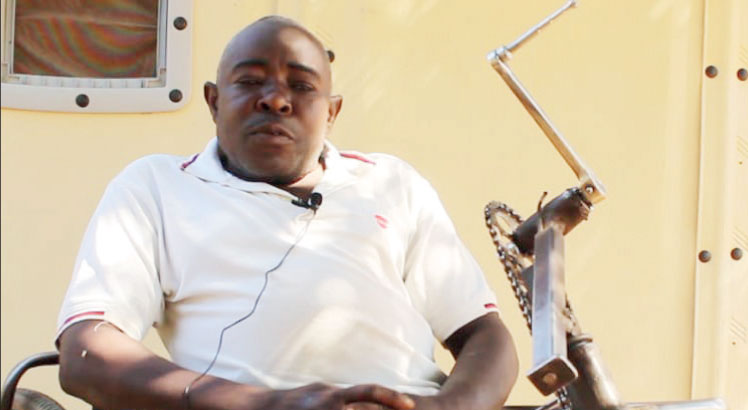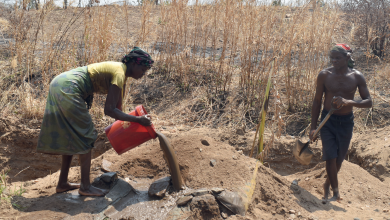Disability increases exposure to disasters
F
rom Cyclone Idai in 2019 to Chido last week, Malawi suffers frequent disasters associated with climate change.
Idai killed over 1 000 of the affected three million people in Malawi, Zimbabwe and Mozambique.
Four years on, Cyclone Freddy affected over 2.2 million Malawians, leaving over 676 dead and 538 missing.
The Department of Disaster Management Affairs (Dodma) reports that Freddy displaced 650 000 households in the Southern Region.

However, persons with disabilities suffer disproportionately during disasters.
According to Malawi Council for Disability Affairs (Macoda), Cyclone Freddy affected over 50 000 persons with disabilities in March 2023.
Many failed to grasp early warnings that were scarcely disability-friendly.
Last year, the World Bank reported that persons with disabilities are four times more likely to die from climate change emergencies—a call for inclusion.
According to the report, at least 15percent of the global population has disabilities, yet climate change adaptation and resilience efforts do not effectively take their needs into account.
Magret Makawa lost her nine-year-old daughter and 22 relatives when mudslides triggered by Cyclone Freddy buried Ntauchila Village in Chiladzulu District.
She could not flee to safety when heavy rains catalysed landslides in a nearby hill at night, flattening homes and killing dozens, with scores still missing.
“It rained heavily for four days, locking us indoors until March 14 2023 when I heard a huge blast in the hill. Mud buried houses, injuring many people,” she says.
Makawa says she cannot afford a peaceful sleep.
She laments: “I am always haunted by the nightmares of what happened that night. People with disabilities were left behind as everyone fled. Some were denied access to early warnings.
“People with visual impairments cannot read information written in ink and paper and others do not hear what is broadcasted on the radio. Some lost their hearing aids and several other assistive devices.”
Makawa urges government to adopt inclusive efforts to put persons with disabilities out of harm’s way.
“This includes disability-friendly climate change information so that we can prepare better for the frequent disasters,” she says.
Federation of Disability Organisations in Malawi executive director Simon Munde decries lack of effective strategies to strengthen the resilience, disaster preparedness and recovery of persons with disabilities.
“This exclusion is a humanitarian crisis in itself,” he says. “The country’s climate adaptation strategies are failing most of the vulnerable population as the challenges and risks faced by persons with disabilities during climate disasters are often not recognised by the government, non-governamental organisations and international agencies.”
Munde says some of them are skipped when distributing relief aid.
“We also need to build the capacity of persons with disabilities about issues of climate change to make informed decisions,” he says.
Macoda director general George Chiusiwa says despite some progressive strides, more needs to be done to mainstream disability issues in disaster and risk management in the country.
“About 50 000 persons with disabilities were displaced by Cyclone Freddy, a stark reminder of the gaps in the management of emergencies,” he said.
Macoda is spearheading inclusive disaster risk management initiatives, including provision of assistive devices for survivors of the world’s longest-running cyclone.
The council has teamed up with Fedoma and Churches Action and Relief and Development (Card) to enhance disability-inclusive risk reduction capacity.
Under the consortium, Macoda has trained local disaster management authorities and community leaders to prioritise the unique needs of persons with disabilities during disaster planning and response.
Dodma spokesperson Chipiliro Khamula says the department has taken strides to prioritise most vulnerable groups during emergencies. The groups often left behind include persons with disabilities, the elderly and child-headed families.
“Recently, the department has been engaging organisations of people with disabilities in developing disability-inclusive disaster risk management and early warning messages in line with challenges they face. We also worked with them to develop and validate tailor-made messages from the Disaster and Risk Management Act,” he says.
Khamula says Dodma is committed to continued engagement, partnerships and coordination to ensure that no one is left behind.
The United Nations’ International Fund for Agricultural Development projects that about 18 million persons with disabilities will be displaced by climate-related disasters by 2050.





